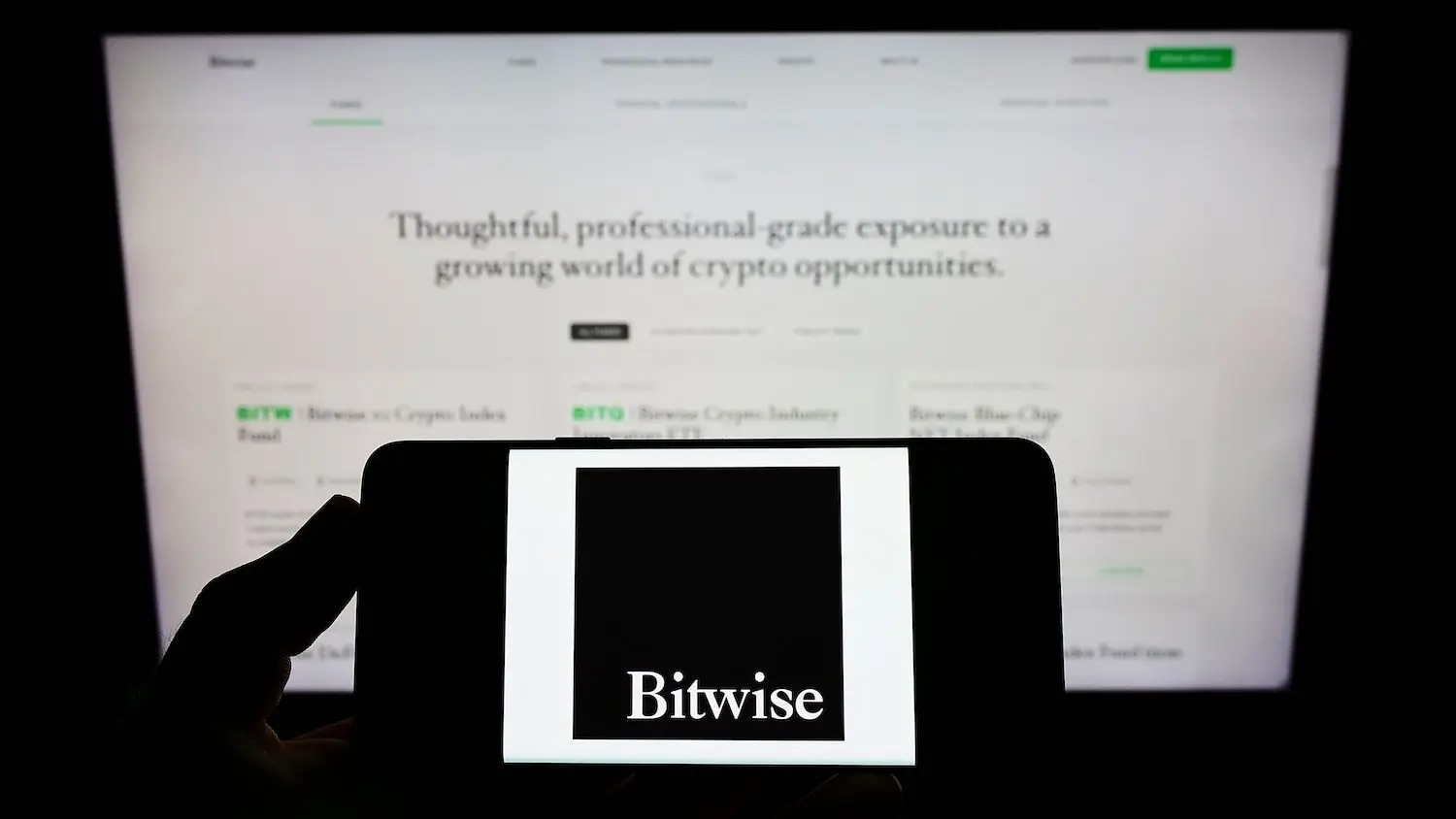Bitwise Asset Management secured a major advantage in the cryptocurrency exchange-traded fund market by launching the first U.S. spot Solana ETF on October 28 while the Securities and Exchange Commission remained closed during a government shutdown. The firm used an untested regulatory process that bypassed formal SEC approval, drawing $420 million in investor capital during the fund's opening week and forcing competitors to revise their product launch strategies.
What to Know:
- Bitwise launched the Solana Staking ETF using a new process that allows trading to begin without direct SEC sign-off, attracting $420 million in the first week according to LSEG data.
- JPMorgan analysts predict altcoin ETFs could draw $14 billion in their first six months, with Solana products capturing roughly $6 billion of that total.
- The New York Stock Exchange proceeded with the launch despite shutdown risks, while Cboe Global Markets advised issuers to wait for regulatory approval.
First-Mover Advantage Reshapes Altcoin ETF Competition
The October 28 launch of Bitwise's Solana Staking ETF tracked the spot price of Solana, the sixth-largest cryptocurrency by market value. Matt Hougan, Bitwise's chief investment officer, said the firm embraces being first to market. "We are following the rules," he added.
Industry executives said the move disrupted plans across the sector. Grayscale Investments converted its existing private fund to an ETF format the following day using the same regulatory pathway. VanEck, Fidelity and Invesco have since adjusted their registration documents to pursue similar launches, while multiple firms filed paperwork for ETFs tied to Ripple's XRP token.
The competition for initial market position carries substantial financial implications.
ProShares secured SEC approval for its Bitcoin futures ETF in 2021 just days before rival products reached the market. That fund now holds $2.8 billion in assets compared to $40 million for its nearest competitor. Ben Slavin, global head of ETFs at BNY, said the stakes remain high for firms that establish first-mover positions. "Even a day's advantage" determines which companies capture millions in management fees, he noted.
Canary Capital launched the first ETFs tracking Litecoin and Hedera on the same day as Bitwise's Solana fund, using identical regulatory procedures. The simultaneous debuts marked a departure from previous SEC practices, which granted blanket approvals for Bitcoin and Ether ETF groups. Some issuers privately criticized the Solana process as disorderly, though others acknowledged Bitwise operated within existing regulations.
Regulatory Uncertainty During Government Shutdown
The SEC adopted generic listing standards for cryptocurrency ETFs in mid-September, eliminating lengthy individual reviews that had delayed dozens of pending products.
The new framework allowed exchanges to list funds without explicit agency approval, though many issuers preferred traditional SEC oversight before proceeding.
The government shutdown that began October 1 complicated launch decisions across the industry.
The SEC issued guidance stating issuers could launch products during the closure by amending filings to warn investors that trading would automatically begin after 20 days. The agency cautioned firms to "consider carefully" potential risks, including possible intervention to suspend or withdraw products if regulators identified problems after operations commenced.
Exchanges took divergent approaches to the uncertainty.
Cboe Global Markets recommended issuers delay launches until the SEC reopened, according to four people familiar with regulatory discussions who requested anonymity. The New York Stock Exchange accepted the risk and agreed to list new products during the shutdown.
Bitwise filed documents on October 23 transferring its proposed ETF from Cboe to NYSE. A company spokesperson said the decision reflected the importance of launching "at the world's largest and most experienced ETP listing venue for a product this unique." Trading began five days later. Craig Salm, Grayscale's chief legal officer, said the firm's regulatory engagement was "essentially complete" when it converted its fund.
Thomas Erdosi, head of product at CF Benchmarks, which provides cryptocurrency indices, described the situation as unusual. "A very unique constellation of events left us at this point where some issuers felt comfortable moving forward," he said. One industry participant said hesitation carries costs. "If you don't move, you lose the opportunity to win."
Understanding Altcoin ETFs and Market Dynamics
Exchange-traded funds tracking individual cryptocurrencies beyond Bitcoin and Ether are classified as altcoin ETFs. These products allow investors to gain exposure to digital assets through traditional brokerage accounts without directly purchasing and storing tokens. Spot ETFs track current market prices, while futures-based funds hold derivative contracts. The Solana blockchain operates as a decentralized network that processes transactions and supports applications, competing with Ethereum in the smart contract platform market.
Competitive Landscape Shifts After Bitwise Launch
The first-week performance of Bitwise's Solana product validated aggressive launch strategies despite regulatory ambiguity. JPMorgan's $14 billion projection for altcoin ETF inflows over six months indicates substantial institutional interest in cryptocurrency exposure beyond Bitcoin.
The prediction that Solana products will capture $6 billion of that total reflects the network's position as a major blockchain platform.
Multiple issuers now face decisions about balancing regulatory caution against competitive disadvantages. The staggered launch pattern differs from coordinated Bitcoin and Ether ETF approvals that allowed multiple firms to enter markets simultaneously. Industry sources said several companies are evaluating whether to adopt Bitwise's approach for pending products, weighing potential SEC intervention against lost market share. NYSE declined to comment on its listing policies, while Cboe did not respond to requests for information about its guidance to issuers.



